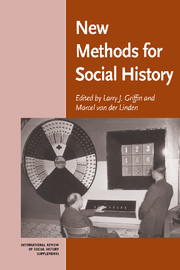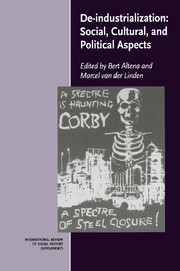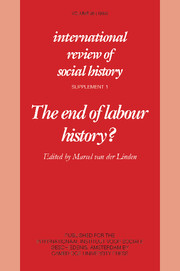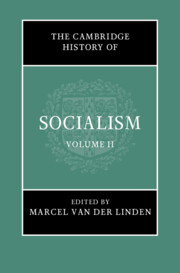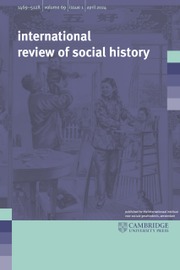New Methods for Social History
During the two decades prior to publication of this book, sociologists had developed a range of new research methods that could be of much use to social historians. This 1999 collection of essays introduces some of the most interesting of these methods: event structure analysis, words-to-numbers, network analysis, qualitative comparative analysis, fuzzy logic, and recursive regression. All essays are written by outstanding experts, address non-initiated readers and use as little jargon as possible. Methods are explained through the use of historical case studies; annotated topical bibliographies have been added.
- Its pedagogical approach means that it could be used as a textbook for university courses
- Bridges gap between the disciplines of sociology and history
Product details
May 1999Paperback
9780521655996
168 pages
229 × 152 × 13 mm
0.27kg
5 b/w illus. 2 tables
Available
Table of Contents
- Introduction Larry Griffen and Marcel van der Linden
- 1. Temporally recursive regression and social historical inquiry: an example of cross-movement militancy spillover Larry Isaac, Larry Christiansen, Jamie Miller and Tim Nickel
- 2. Using event history analysis in historical research: with illustrations from a study of the passage of women's protective legislation Holly J. McCammon
- 3. Spatial analysis Glenn Deane, E. M. Beck and Stewart E. Tolnay
- 4. Fuzziness in multivariate classification of historical data Leonid Borodkin
- 5. Narrative as data: linguistics and statistical tools for the quantitative study of historical events Roberto Franzosi
- 6. The logic of qualitative analysis Charles C. Ragin
- 7. Historical social network analysis Charles Wetherell
- 8. Historical inference and event-structure analysis Larry J. Griffen and Robert R. Korstad.

